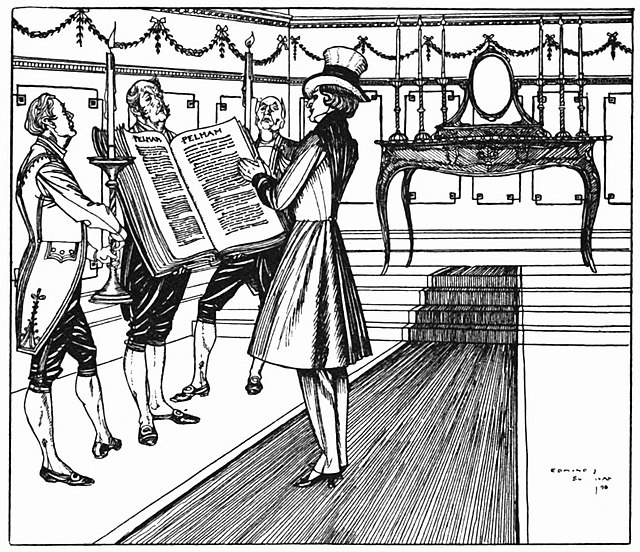Dude is American slang for an individual, typically male. From the 1870s to the 1960s, dude primarily meant a male person who dressed in an extremely fashionable manner or a conspicuous citified person who was visiting a rural location, a "city slicker". In the 1960s, dude evolved to mean any male person, a meaning that slipped into mainstream American slang in the 1970s. Current slang retains at least some use of all three of these common meanings.
Evander Berry Wall, a New York socialite, was dubbed "King of the Dudes". He is pictured (1888) in the New York American newspaper at the time of the "battle of the Dudes".
Among the first published descriptions defining "dude"; Chicago Tribune, 25 February 1883
A dandy is a man who places particular importance upon physical appearance and personal grooming, refined language and leisurely hobbies. A dandy could be a self-made man both in person and persona, who emulated the aristocratic style of life regardless of his middle-class origin, birth, and background, especially during the late 18th and early 19th centuries in Britain.
Parisian costumes: The dandies of Paris in 1831.
The British Dandy: Beau Brummell in a double-breasted sportscoat and odd trousers, in 1805. (Richard Dighton).
In The Dandies' Holy of Holies: a man scans an over-sized edition of the novel Pelham: Or, The Adventures of a Gentleman (1828), by Edward Bulwer-Lytton. The illustration, by E. J. Sullivan, is from an 1898 edition of the novel Sartor Resartus (1831), by Thomas Carlyle.
The French Dandy: The symbolist poet Robert de Montesquiou. (Giovanni Boldini).






